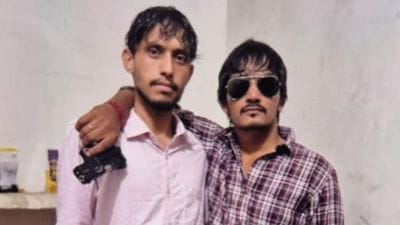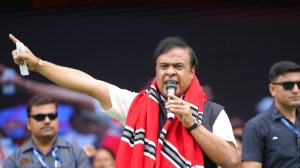Court said assess farmers’ minds, govt uses little of its own
Seated on the floor of a sparse panchayat hall in a remote tehsil of Yavatmal, a group of about 35 villagers is all ears to a team of psychi...

Seated on the floor of a sparse panchayat hall in a remote tehsil of Yavatmal, a group of about 35 villagers is all ears to a team of psychiatrists. The subject: the psychology of suicide.
Organised at the behest of the Bombay High Court, it’s one of 17 camps being held in drought-ravaged Vidarbha, in areas which have seen the maximum farmer suicides, to provide mental healthcare and counselling to the farmers struggling against the inconsistencies of the monsoon and markets.
What they get are homilies from a State Health Department team of four. ‘‘Don’t commit suicide, it won’t lead you anywhere. Hardships are inherent to everyone’s life,’’ psychiatrist P D Awake tells the audience which, it turns out, includes just a few farmers.
Taking him to be a regular government official, two of the farmers, Bumanna Pabbalwar and Arvind Upparwar, ask questions about water and fodder scarcity. But neither irrigation nor rural development officials are present. They are told their ‘‘grievances will be conveyed to proper authorities’’. Meanwhile, they have to remember that ‘‘suicide is no solution to any problem…Think of your children’’.
Before the lecture ends, half the audience has trooped out. The few who stay back are served tea and more tokenism. After lunch, the ‘‘experts’’ leave for a neighbouring village.
Over 200 farmers, buffeted by the effects of a poor monsoon and rising debt, have ended their lives in Vidarbha since July this year. The ‘‘psychiatric check-up camps’’ were set up on a directive from the High Court’s Nagpur Bench, following a petition by social worker Neeta Madavi. These are being held from October 29-November 10 in the Ghatanji, Wani and Ralegaon tehsils to provide counselling to distressed farmers.
On the ground though, there is virtually no coordination among government agencies to carry out this exercise. The absence of revenue, agriculture and irrigation officers prevents the expert team from tackling any of the core issues relating to the problem.
At a camp at Patanbori village on the Maharashtra-Andhra Pradesh border, the team comprising a psychiatrist, doctor and two counsellors tells the audience: ‘‘Talk out your problems with friends, don’t let frustration pile up. And don’t spend more than you can.’’
When the farmers, in turn, inquire about solutions to long-pending problems such as water shortage, ban on borewells and cattle-grazing, the counsellors have no reply. ‘‘How can we answer such questions? There are other authorities for that,’’ they say. Then, shouldn’t Revenue and Agriculture officials accompany them to such camps? Yes, they admit, that would have made more sense.
Yet, the team leader says, ‘‘We have seen about 60 patients so far in the six camps held since October 29. We have also been visiting families of farmers who have committed suicide.’’
When questioned about his involvement with the camps, Yavatmal Collector Harshadeep Kamble said: ‘‘The Deputy Director of Health Services, Akola, had ordered the camps and they are being organised by that department. I don’t have more details. Please contact our civil surgeon.’’
Gajanan Bejankiwar, a bemused village youth at one such camp, sums it up: ‘‘These people have come during the middle of the day when the farmers have all gone to their fields. The real problems of this area are water and fodder shortage. Who will talk about them?’’
Photos


- 01
- 02
- 03
- 04
- 05




























